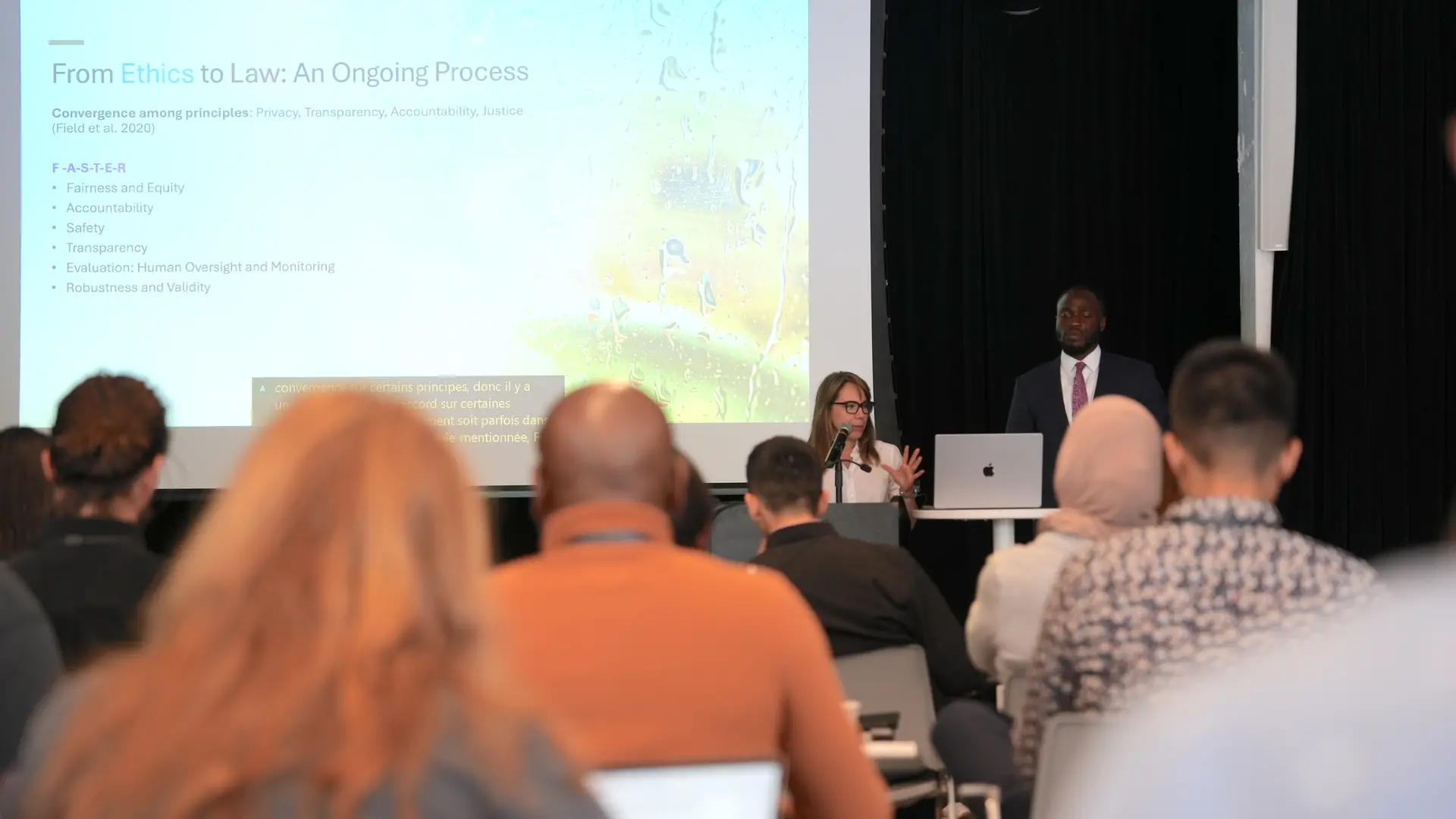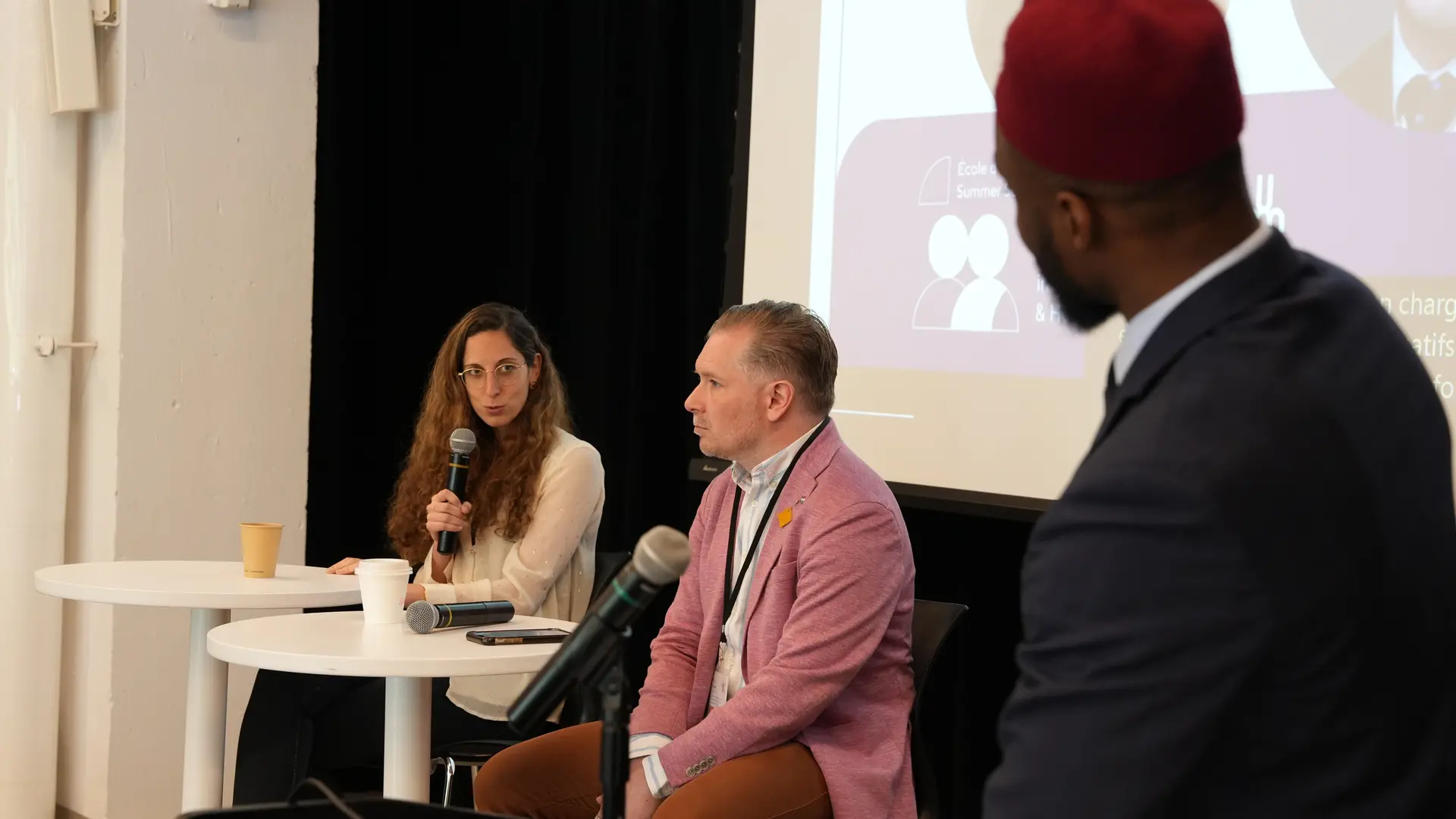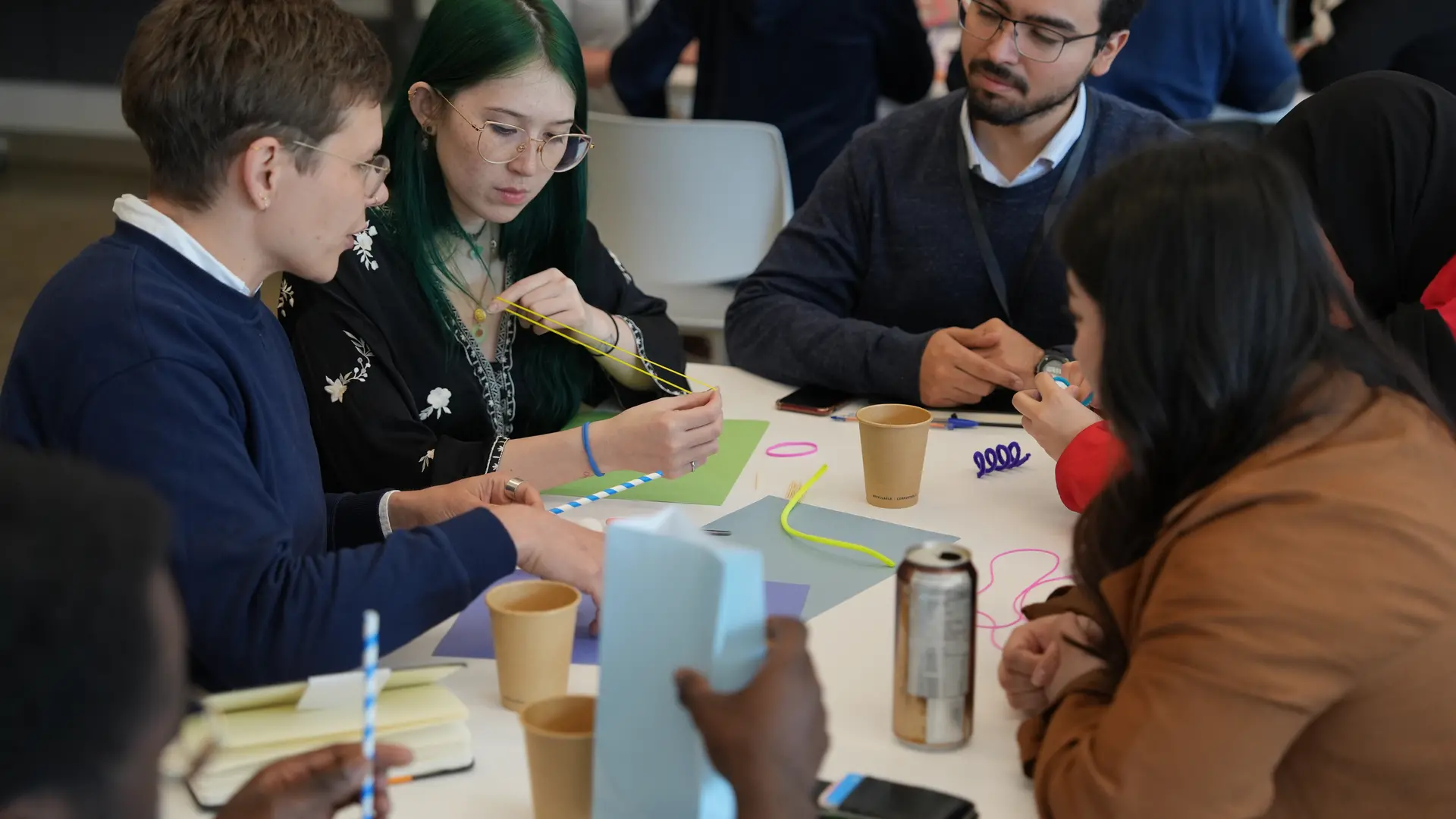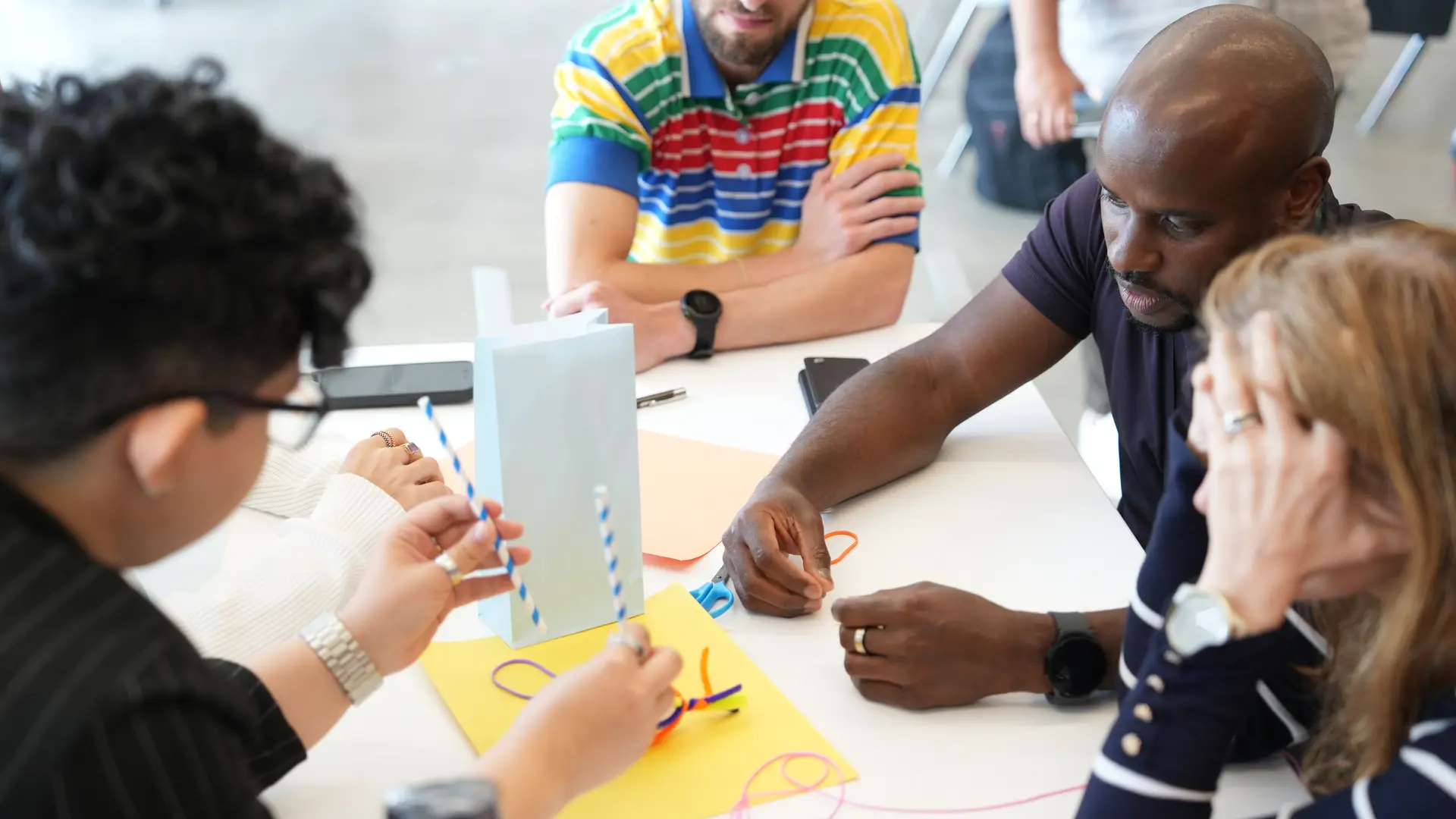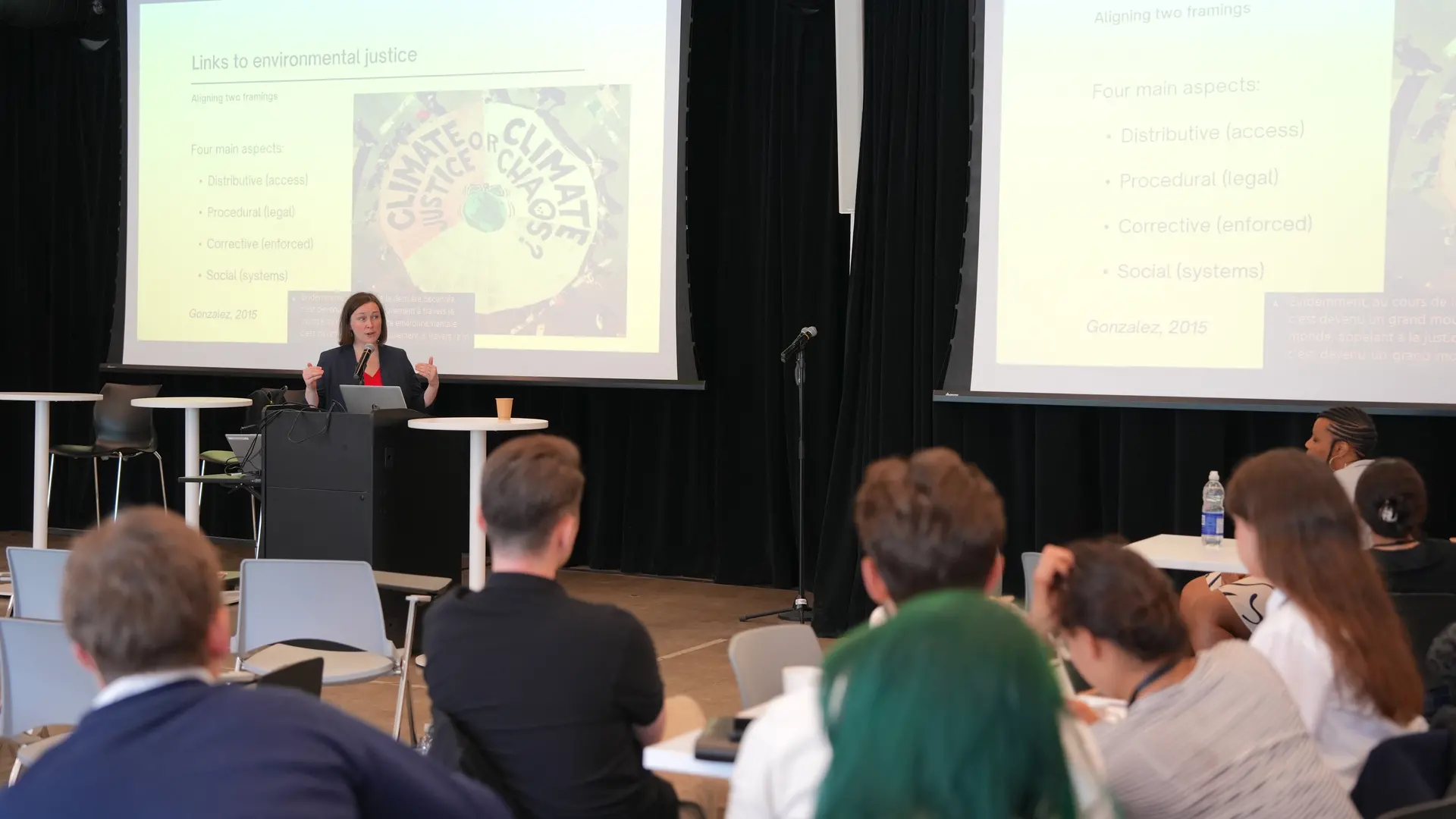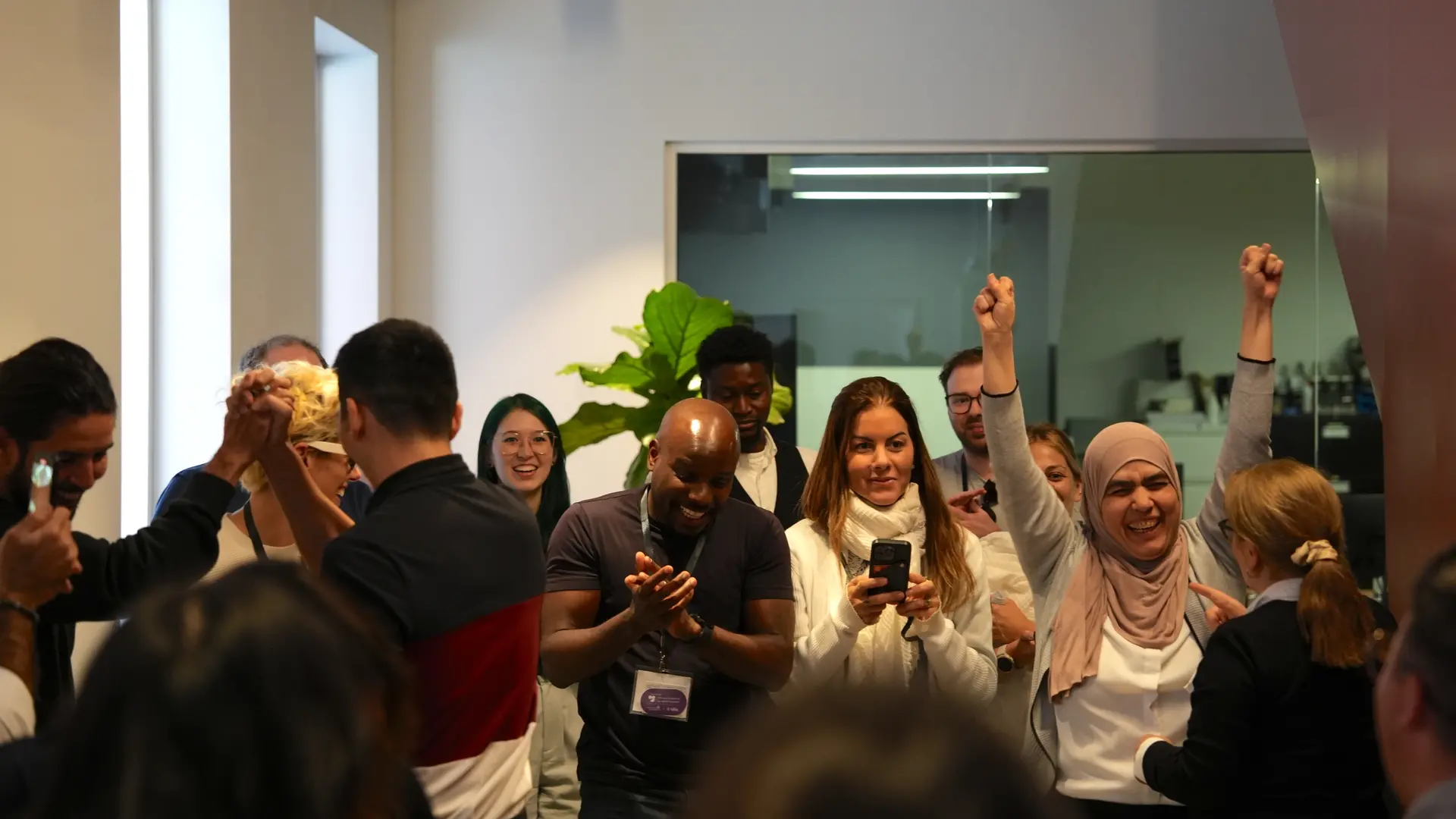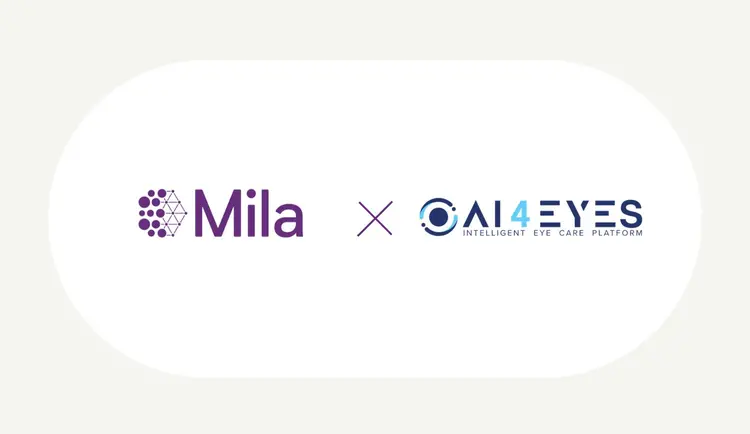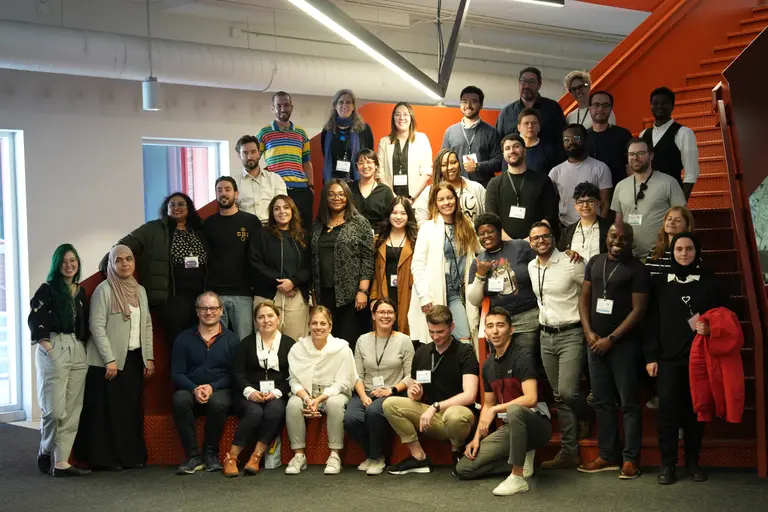
Forty participants from 20 countries gathered from May 27 to 31, 2024 at Mila - Quebec Artificial Intelligence Institute in Montreal for the second Summer School on Responsible Artificial Intelligence (AI) and Human Rights, exploring themes such as the implementation of responsible AI principles, global governance, algorithmic biases, workers' rights and the environmental impact of AI.
During the week-long event, organized in collaboration with the Université de Montréal, the 40 participants from academia, industry and civil society learned how to better design, deploy and frame AI systems responsibly.
“We are very glad that the intersection of human rights and AI generates so much interest every year, and very proud that our summer school is helping address the pressing, fundamental issues that arise from it. This second edition prompted rich discussions and mobilized specialists from around the world who will become the next leaders in responsible AI in their respective fields.” - Catherine Régis, co-organiser of the summer school, Professor of Law at Université de Montréal, Associate Academic Member at Mila
Once again this year, the summer school distinguished itself by exploring not only the relationship between AI and human rights, but also by tackling subjects often overlooked in mainstream debates, such as the environmental impacts of AI or the working conditions of data workers. Here is an overview of the speakers and topics addressed at this second edition, offering an ever more comprehensive and nuanced picture of the development and use of AI:
Virginia Dignum, professor of responsible AI at Umeå University, kicked off the discussions with an introduction to responsible AI, addressing AI ethics but also different legal approaches and governance.
Marc-Antoine Dilhac, professor of philosophy at the Université de Montréal and associate academic member at Mila, then addressed the creation of inclusive frameworks and the practical application of these theoretical approaches, notably through the example of the Montreal Declaration for the Responsible Development of Artificial Intelligence.
Catherine Régis and Jake Okechukwu Effoduh, assistant professor of Law at Toronto Metropolitan University, then discussed human rights and how to integrate them in the context of AI.
The following day, Su Lin Blodgett, senior researcher at Microsoft Research, used the example of natural language processing (NLP) tools to outline the steps to take throughout the lifecycle of an AI system to ensure that it is designed, used and maintained responsibly.
Later, Golnoosh Farnadi, assistant professor at McGill University and core academic member at Mila, outlined the various machine learning techniques for remedying algorithmic biases to make AI systems fairer and less discriminatory.
On the third day, Nathalie Smuha, lawyer and philosopher at KU Leuven University, presented the different aspects of AI regulation and its challenges, focusing on the example of the European Union (EU). She was joined by Mark Schaan, senior assistant deputy minister at the Canadian Department of Innovation, Science and Economic Development, and Jake Okechukwu Effoduh to compare regulatory approaches in the EU, Canada and Nigeria.
On the fourth day, Phil Dawson, head of AI policy at Armilla AI, Prateek Sibal, technology policy researcher at UNESCO and Lucia Russo, economist and AI policy analyst for the OECD, explored how major institutions are working to govern AI while respecting state sovereignty.
Maria Axente, head of AI public policy and ethics at PwC UK, and Emmanuel Letouzé, director and co-founder of the Data Pop Alliance, then presented avenues for applying governance frameworks in private organizations or non-profit organizations.
On the final day of the conference, Sasha Luccioni, climate lead at Hugging Face, highlighted the environmental impacts of AI, including energy consumption, resources required to manufacture electronic components and cool servers, and the use of AI driving over-consumption.
Later, Noah Oder, AI policy consultant at the OECD, Allison Cohen, senior manager of applied projects at Mila and Milagros Miceli, research group lead at Weizenbaum-Institut and researcher at DAIR, addressed the issues surrounding data annotation, often conducted in precarious working conditions where human rights are less likely to be respected.
Throughout the week, participants also took part in hands-on workshops related to health (with Université de Montréal's Digital Health Consortium), climate change (with Future Earth), data governance (with Data Pop Alliance) and indigenous issues (with CIFAR).
Finally, they also took part in workshops and practical projects aimed at developing skills such as collaboration, interdisciplinarity, and personal leadership to make participants responsible AI leaders in their unique cultural contexts.



